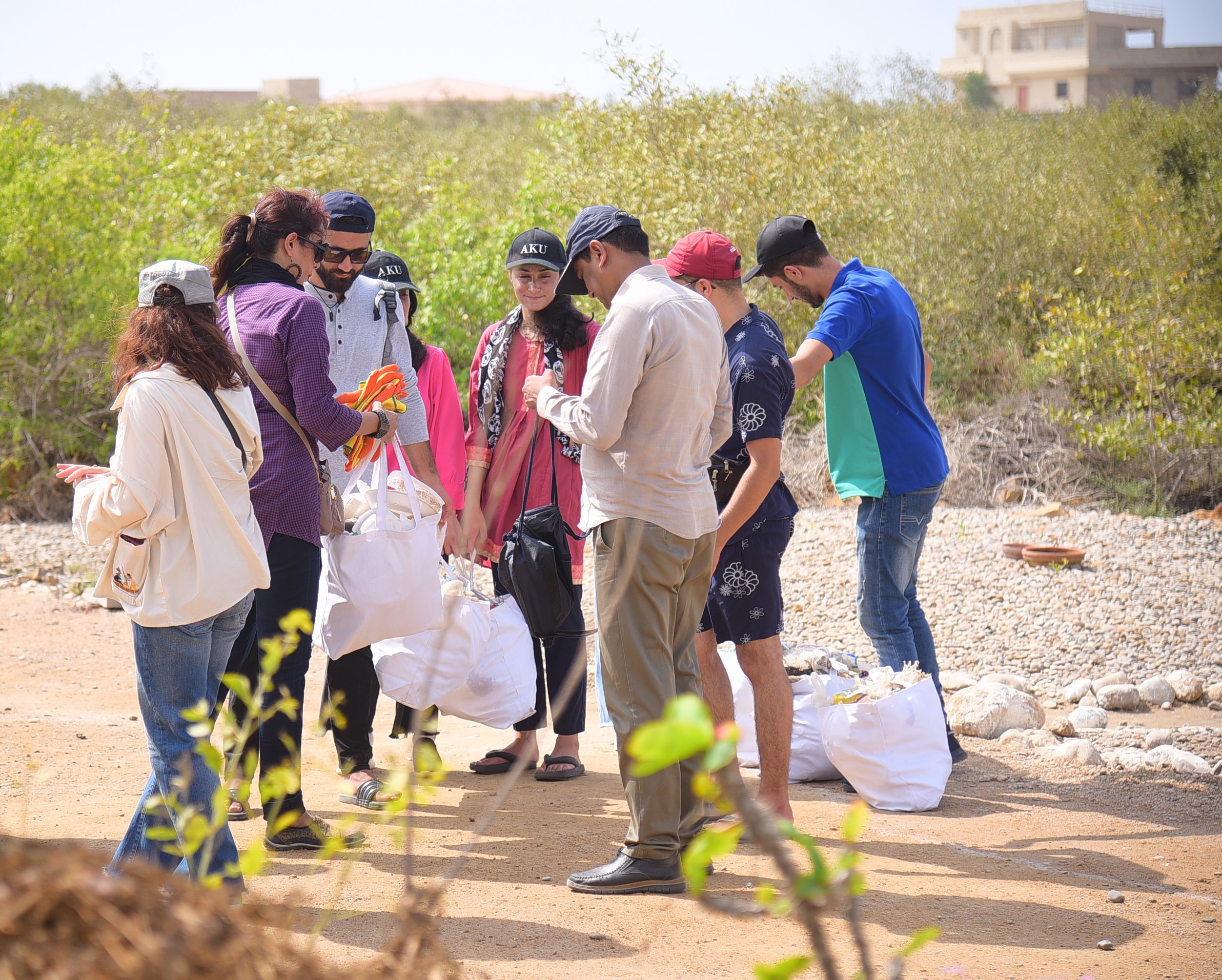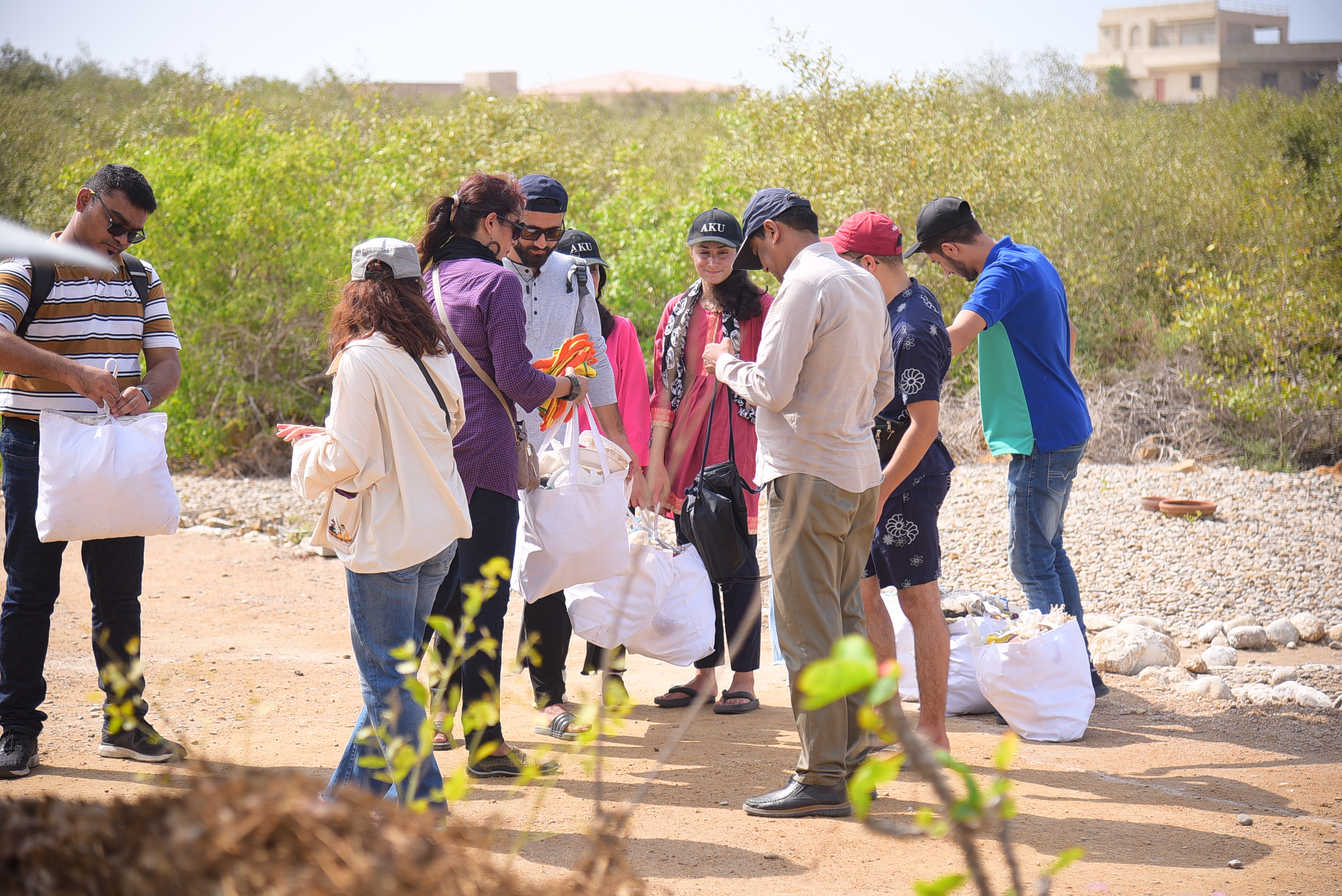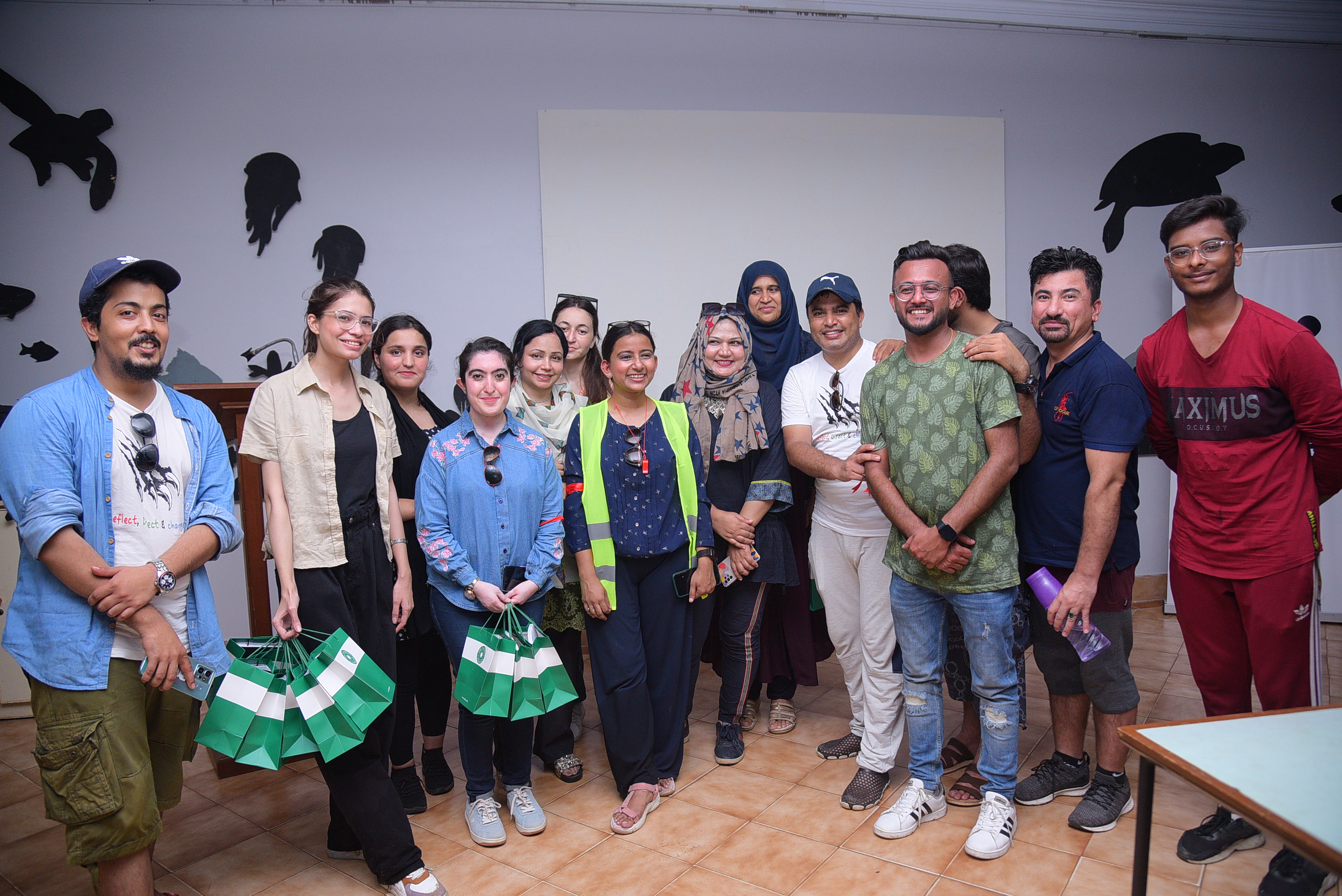Every year on 16 September, the World Cleanup Day is celebrated by millions of people. This social action movement mobilizes volunteers, governments, and organizations around the world to tackle the solid waste crisis which plagues our land and marine environment.
Living in Pakistan, people are used to seeing mounds of trash everywhere. Karachi, Pakistan’s largest city, generates more than 16,500 tons of municipal waste every day. Most municipal waste is either burned or dumped on the side of roads or vacant lots.
To take change in our own hands and join the global cleanup movement, the Aga Khan University brought together 80 of its students, faculty, and staff to clean up one of Karachi’s ecologically important beaches – Sandspit. Sandspit beach is the nesting ground for sea turtles, especially the green and olive ridley turtles. Green turtles are the largest of the sea turtles and are currently classified as endangered. Plastic waste and debris in the ocean and along the beach pose significant threats to their survival.
Organised by the Office of Environment and Sustainability in collaboration with the student-led Society on Climate Conservation and Health (SoCCH), this cleanup drive was not an ordinary one. It was a zero-waste beach cleanup, which means no waste was generated during the activity. Executed with the support of WWF Pakistan, no single-use items were used during the activity. The participants were given reusable cloth bags and cotton gloves to collect trash while snacks were provided in reusable utensils provided on site at the WWF Wetland Center.

AKU students and employees together collected 145 Kg of trash in an hour. They proved that a sense of responsibility has the power to change the situation for the better.
In addition, the participants also planted mangrove saplings and took part in a guided trek through the mangrove forest at the WWF Wetland Centre. Mangrove forests provide a critical ecosystem and serve as a nursery for fish, crabs, and other marine wildlife, provide habitat for birds, bees, snakes, and other terrestrial fauna, protect communities from storms and flooding, prevent erosion and provide livelihoods to thousands of people along the coasts.
AKU is committed to achieving net zero operations by 2030 and has a robust sustainability agenda. This activity contributed directly to raising awareness on environmental challenges and bringing stakeholders together to take action.


This is what our participants had to say about the event:
“For me, the beach cleaning and wildlife adventure provided a memorable, educational, and impactful experience that left a lasting impression, emphasizing the importance of responsible environmental stewardship.” – AKU staff
“Fostering teamwork during the beach cleaning segment was a brilliant initiative, promoting a sense of community and purpose among participants. It showcased the power of collective effort in making a difference.” – AKU staff
“I learnt a lot about the mangrove ecosystem. The most exciting part for me was the trek through the mangroves which enhanced active and experiential learning.” – AKU student
“Excellent trip and a great learning experience. The whole event was very well planned and executed. Very proud of the organisers!” – AKU faculty

